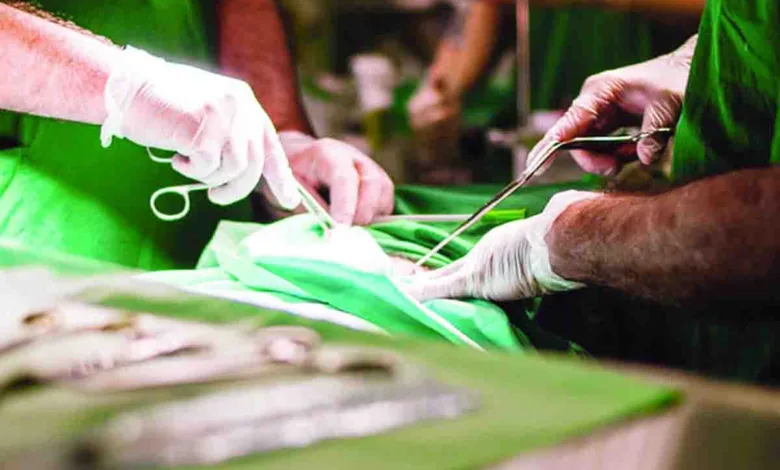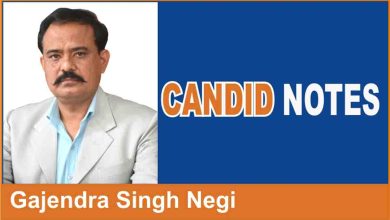Medical negligence: a matter to ponder

Friday, 21 July 2023 | in Guest Column
GUEST COLUMN

Medical negligence under the IPC Section 304A reads as, “Whoever causes the death of any person by doing any rash or negligent act not amounting to culpable homicide shall be punished with imprisonment of either description for a term which may extend to two years, or with fine, or with both.”
The doctor is not liable for every injury or complication suffered by a patient. Bolam test states that when a doctor accepts standard practice, then he is not doing a breach of his duty. In case there is no breach or the breach did not cause the damage, the doctor will not be liable. Normally, the liability arises only when the plaintiff is able to discharge the burden on him of proving the negligence. However, in some cases like a swab left inside the abdomen of a patient or the wrong side operated, the principle of ‘res ipsa loquitur’ (the thing speaks for itself) might come into play.
In our opinion, it is difficult for a lay man to evaluate the quality of a product or a service given by any professional. In our country, where significant number of people are illiterate and there is a hostile atmosphere among the general society it seems that the cause may not actually be medical negligence but the difference of perception in certain services which leads to discord in doctor patient relation and communication which may lead to an altercation and ultimately the issue may land up in the court. It is seen that some patients usually hide the actual cause of injury, history of alcoholism and the pre-existing comorbidity to avoid non-settlement through insurance companies. They hide comorbidities because many healthcare providers either refuse to take up such high risk patients or if they do then the financial liabilities of the treatment increases. Diseases like HIV and hepatitis B/C infections are usually hidden due to social stigma or the fear of refusal of medical services to them.
The National Consumer Disputes Redressal Commission (NCDRC) dismissed a case filed by the wife and two daughters of former Chief Justice of India (CJI) JS Verma alleging that medical negligence led to his death. The plaintiff was seeking exemplary damage and compensation of Rs 10 crore by the treating doctors and hospitals. The commission observed that “as long as a doctor acts in a manner which is acceptable to the medical profession, and the court finds that he has attended on the patient with due care skill and diligence and if the patient still does not survive or suffer a permanent ailment, it would be difficult to hold the doctor to be guilty of negligence”. The commission observed that Justice Verma, 80, suffered from multiple comorbidities which contributed to his death. It is also said that Delhi Medical Council (DMC) and Medical Council of India (MCI) had considered it twice and found there was no negligence on the part of the treating doctor at any stage. The commission also held that “…a medical practitioner is not to be held liable simply because things went wrong from mischance or misadventure or through an error of judgement in choosing one reasonable course of treatment in preference to another.”
We would like to share another incident of a patient who had a dubious history since presentation when his friend admitted him to the hospital with the history of an alleged injury at home but when his father was asked he gave a history of an adventure sports injury and later on of a road traffic injury in a police complaint. Although this was overlooked initially, the chain of falsification continued. On asking for the medical and personal history he did not give any history of alcohol or any substance abuse. It was known only after routine blood investigations done routinely before the surgery which revealed that his GGTP -589 IU/L which was much higher than the normal range of 10-45 IU/L which is a marker of alcohol intake. Further it was also observed that his serum Bilirubin was 3.3 mg % which is a marker of liver disease. The surgery of the patient was hence postponed as his coagulation profile report was awaited and way delayed till his parameters were optimised to be fit for surgery. The patient was known to have a long standing alcohol and drug abuse issue which was known to all his neighbours, local chemists and local police but the patient’s father did not divulge these facts at the time of admission. The patient died in the hospital due to sudden spontaneous internal bleeding due to his pre-existing alcohol and drug addiction complication and other comorbidities. The patient’s father brought this matter to the police and local administration. The CMO inquiry committee did not find any medical negligence. In spite of that, the patient’s father approached the local state medical council. With the connivance of the patient’s father and a certain member of the committee, the state medical council debarred the doctor from medical practice for six months. The doctor appealed to the MCI. After a thorough investigation and adequate deliberations, the doctor was exonerated from all charges. In fact the MCI stated, “The MCI is unable to understand from the records supplied by the state medical council that on what ground the state medical council debarred the doctor?”
The incident which was cited here is a glaring example of the nexus between the fraudulent behaviour of the certain relatives and certain doctors of the medical authorities who are harassing the majority of the honest and sincere medical doctors and healthcare providers. This is just the tip of the iceberg in the hundreds of thousands of cases which are pending in various courts in India. The courts should think over about the patients who behave fraudulently and have the habit of manipulating facts with their malafide intention to blackmail and to extort money from doctors and the healthcare service providers.
Many a time due to professional rivalry, state medical councils in connivance with their committee members have not looked into the facts but have passed vindictive judgments to settle their own scores by misusing their power. It is a matter of concern for all medical professionals and for the policymakers to amend the act to safeguard the interest of the doctors and the other healthcare providers because this is not only in the interest of the medical profession, but that of the society and of the nation.
Humans err and doctors are human and hence they are also prone to make mistakes but the incidence of mistakes by well qualified experienced doctors are minimal. In India, just about over 52 lakh medical errors happen every year, according to medical negligence statistics in India. In a recent study by a state government in India, it was found that of the 112 cases of medical negligence in a year and only 14 per cent of the patients were real victims of medical negligence. Certain patients and their family and friends are always on the hunt for mistakes and shortcomings in the treatment and services and are regularly inciting the staff and doctors by indulging in verbal abuse, brawl and vandalism among other means.
Health is one of the basic needs of all individuals. The medical profession is a noble profession and the basic foundation of the medical profession is the faith and trust between doctors and patients and their friends and family. But considering these incidents, the younger generation is least interested in opting for the medical profession. This is a matter to ponder.
(The authors are Dehradun based orthopaedic surgeons. Views expressed are personal)






